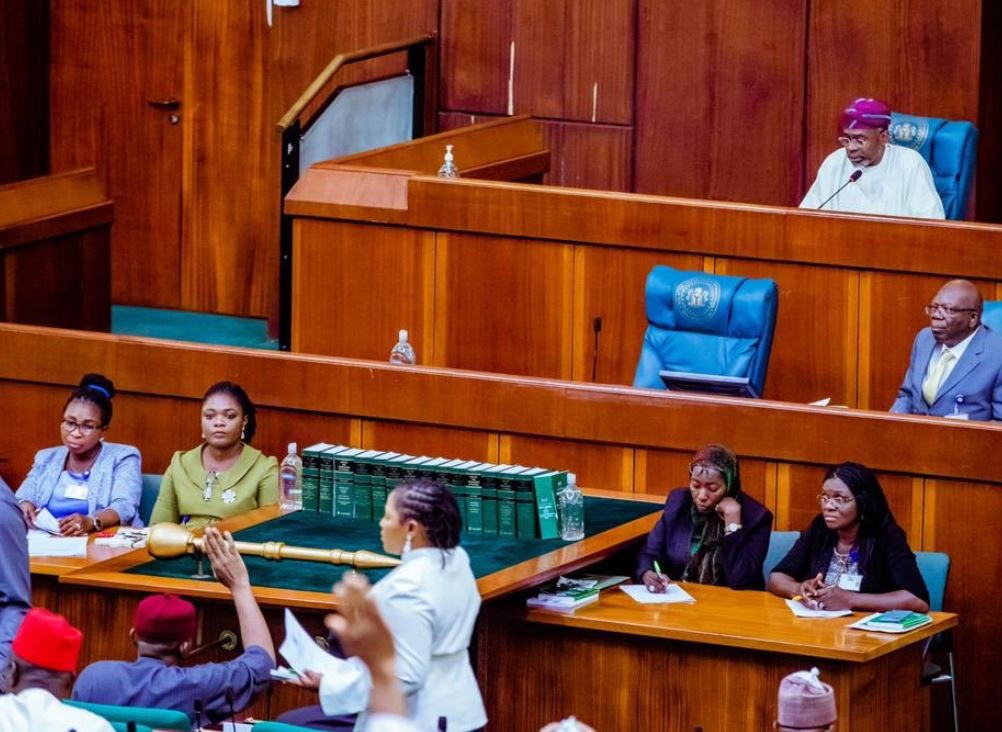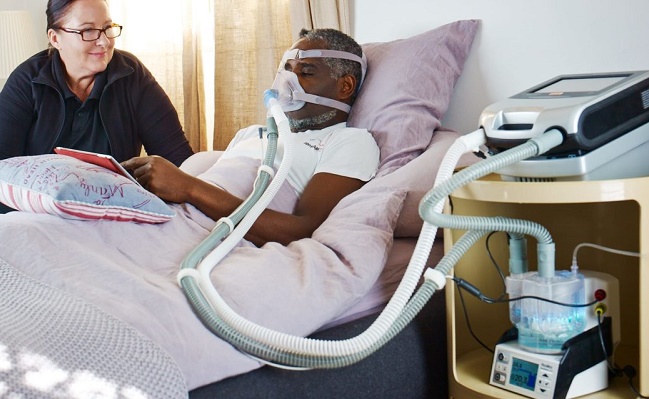When the house of representatives resumed plenary sessions on Tuesday, the lawmakers debated on a number of issues including the infectious diseases control bill which seeks to repeal the quarantine act of 1926 and provide new regulations that would enable Nigeria to adequately manage situations like the coronavirus pandemic.
The bill, which passed for second reading on that day, has been a subject of controversy owing to some provisions which some Nigerians have argued infringe on the fundamental rights of citizens.
Sponsored by Femi Gbajabiamila, the speaker, alongside two other lawmakers including Pascal Obi and Tanko Sununu, the piece of legislation seeks to “make provisions relating to quarantine and make regulations for preventing the introduction into and spread in Nigeria of dangerous infectious diseases, and for other related matters; and for related matters”.
Although the bill is yet to be approved by the house much less being concurred to by the senate before being sent to the president for assent, a copy of it obtained by TheCable shows that apart from the issues of human rights concern such as arbitrary arrests, it also gives the director-general of the Nigeria Centre for Disease Control (NCDC) and the minister of health powers without adequate checks.
Advertisement
Below are key highlights of the proposed law:
POWERS FOR ARBITRARY ARREST AND ‘WHATEVER THAT IS NECESSARY’
On at least 15 occasions, the 47-page bill empowers the police, health officers or anyone so directed by the NCDC DG to arrest any suspect for alleged breach of any of its 80 provisions, mostly without the need for a warrant issued to that effect.
Advertisement
Also, in a number of cases, there seem to be no need for reasonable evidence that an individual has committed a crime under the bill to warrant an arrest. For instance, section 57 empowers a police or health officer to, on the orders of the NCDC DG, arrest an individual “who he has reason to believe has committed any offence under this Act” under certain conditions including “if there is reason to doubt the accuracy of the name and address if given”.
Its section 15(4) also gives the police or health officers — some of who are appointed by the NCDC DG — the power to “take any action that is necessary to give effect to an order under subsection (3) (which relates to the isolation centre)”.
That subsection three empowers the NCDC DG to, through written orders: “(a.) prohibit any person or class of persons from entering or leaving the isolation area without the permission of the Director General; …
“(b.) prohibit or restrict the movement within the isolation area of any person or class of persons; (c.) prohibit or restrict the movement of goods; (d.) require any person or class of persons to report at specified times and places and submit to such medical examinations, answer such questions and submit to such medical treatment as the Director General thinks fit; …
Advertisement
“(e.) authorise the destruction, disposal or treatment of any goods, structure, water supply, drainage and sewerage system or other matter within the isolation area known or suspected to be a source of infection; and (f.) prohibit, restrict, require or authorise the carrying out of such other act as may be prescribed.”
This means that, if a police or health officer thinks it is necessary, they have the right to shoot an individual to effect the aforementioned provisions, especially as there is no definition of what could be necessary nor a limit provided for such.
ANY PLACE COULD BE DECLARED AS AN ISOLATION CENTRE
The proposed legislation empowers the minister of health to declare “any premises” as an isolation area if he so desires.
Advertisement
The section 15 states: “(1) The Minister may, for the purpose of preventing the spread or possible outbreak of an infectious disease, by notification in the Gazette declare any premises to be an isolation area.
“(2) A notification under subsection (1) shall be effective until the expiration of such period as may be specified in the notification or until it is revoked by the Minister, whichever occurs first.”
Advertisement
COMPULSORY VACCINATION FOR EVERY CHILD
The new bill also mandates parent or guardian of “every child in Nigeria” to “ensure that the child is vaccinated against infectious diseases such as diphtheria, measles, polio and meningitis”. It also requires a notice for vaccination to be issued for newborns “immediately” after their birth.
Advertisement
Its section 47 also empowers the NCDC DG to direct anyone not vaccinated for a disease during an outbreak to do so.
It states: “(1) In an outbreak or a suspected outbreak of any infectious disease in any area in Nigeria, the Director General may by order direct any person or class of persons not protected or vaccinated against the disease to undergo vaccination or other prophylaxis within such period as may be specified in the order.
Advertisement
“(2) In addition to the power conferred by subsection (1), where it appears to the Director that — (a.) an outbreak of an infectious disease in any area in Nigeria is imminent; and …
“(b.) It is necessary or expedient to do so for the securing of public safety, the Director may by order direct any person or class of persons not protected or vaccinated against that infectious disease to undergo vaccination or other prophylaxis within such period as may be specified in the order.
“(3) Any order made under subsection (1) or (2) may specify the person by whom and the way the vaccination or other prophylaxis is to be carried out.
“(4) Where any order is made under subsection (1) or (2), the Director General shall cause notice of the effect of the order to be given in such a manner as he thinks necessary for bringing it to the notice of all persons who in his opinion ought to have notice thereof.”
‘SIX MONTHS JAIL FOR FIRST TIME OFFENDERS, N2M FINE FOR FALSE INFORMATION FROM BLOOD DONORS
The bill also provides for stringent penalties for some offences, including six months jail for first time offenders under any of the act for which no penalty was given.
Section 68 states: “Any person guilty of an offence under this Act for which no penalty is expressly provided shall — (a.) in the case of a first offence, be liable on conviction to a fine not exceeding N100,000 (One Hundred Thousand Naira) or to imprisonment for a term not exceeding 6 months or to both; and …
“(b.) in the case of a second or subsequent offence, be liable on conviction to a fine not exceeding N200,000 (Two Hundred Thousand) or to imprisonment for a term not exceeding 12 months or to both.”
Also, a blood donor who supplies any false or misleading information shall, upon conviction, pay a fine not exceeding N2 million or be imprisoned for a term not exceeding two years or both.
It also provides for a fine of N5 million for a convicted individual who owns a vessel or who supplies food and water to a vessel without either ensuring that what is supplied is “fit for human consumption” or that the vessel or “vehicle and the food and water receptacles therein are in a clean and sanitary condition”.
Anyone who “wilfully neglects or refuses to carry out or obstructs the execution of any emergency measure” formulated by the NCDC DG as part of his “extraordinary powers” provided for in section 61 will, upon conviction, be liable for a fine of N1 million or imprisonment of six months or both.
UNCHECKED POWERS FOR THE NCDC DG
The bill also seems to give quite a number of powers to the NCDC director-general, most of which are as he “deems fit”. While the minister was mentioned on about 30 occasions, there at least 150 mentions of the centre’s DG.
For instance, it enables the NCDC DG to appoint any public official to be a health officer and such person, like the police officers, are empowered to make arrests with or without a warrant. Its section 2(1) empowers the DG to “appoint any public officer, officer of any statutory body; or employee of a prescribed institution, to be a Health Officer for the purposes of this Act” subject to such conditions or restrictions as he thinks fit.
Also, its section 61 provides for “extraordinary powers in relation to emergency measures” which states that the NCDC DG “may, with the approval of the Minister, formulate and implement emergency measures for the control of an infectious disease in any area and such measures shall be published in the Gazette before implementation.”
Unlike the quarantine act of 1926 in which powers mostly reside with either the president or minister, most of the powers of the NCDC DG in the new bill are to be exercised without any approval from the minister or the president including powers to direct vaccination, order arrest of suspects or closure of the premises he believes might lead to the outbreak or spread of any infectious disease.
EXCLUSION OF STATE GOVERNORS
Unlike the infectious diseases act of 1926 which among other things empowers state governors to issue quarantine regulations and any other directives as provided for, the new bill does not recognise such powers for the governors.
In fact, there is no mention of ‘governor’ except in its section 78 which states that “the powers of the President under this Act shall be exercisable by him or any Minister designated by him in that behalf and references in this Act to Governor shall be construed accordingly”.
Interestingly, such powers are non-existent.
Add a comment







